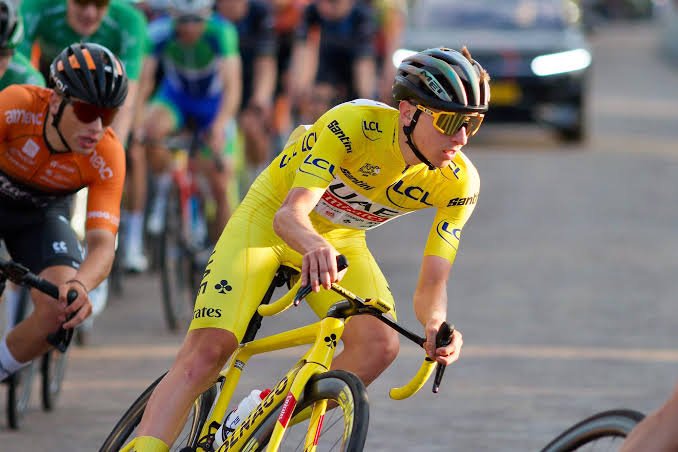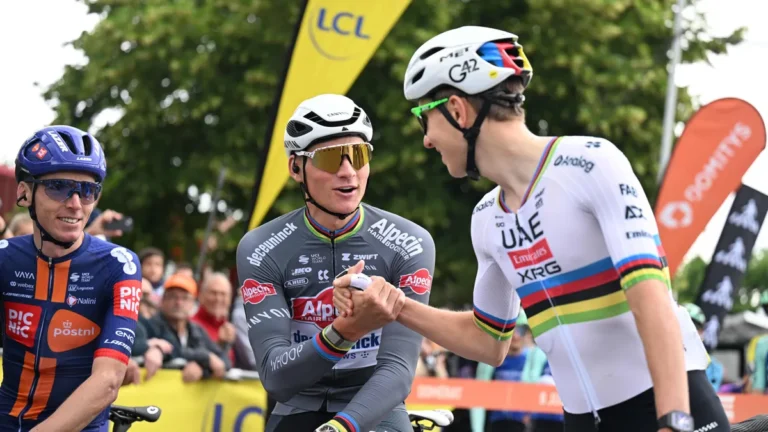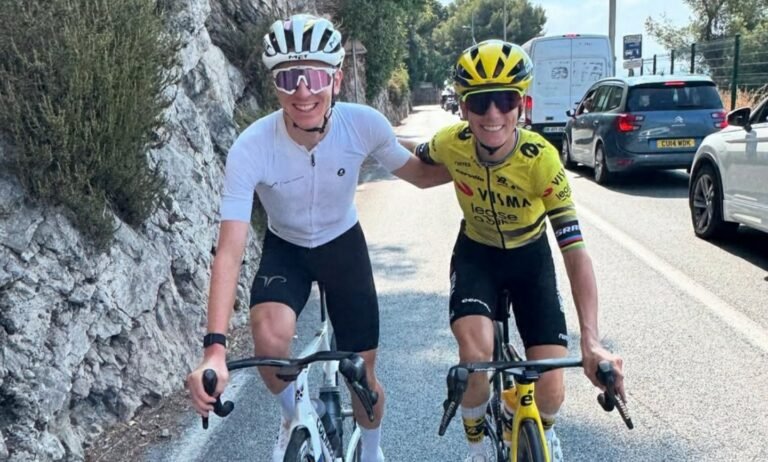
Tadej Pogacar represents the new era in cycling and while this won’t endure indefinitely, what the reigning World Champion and Tour de France leader has accomplished so far exceeds all expectations. Behind numerous outcomes is his present coach Jeroen Swart, who has discussed him and various subjects, including the shifts in nutrition during recent years.
We’re quite fortunate with Tadej. “Swart mentioned in a Bicycling interview that he is not just exceptionally talented physically, but he also possesses remarkable mental and emotional strength.” “He’s the ideal type of cyclist to include in a team.” He interacts well with both staff and fellow riders. He has high standards, yet he’s never a diva. He’s rational and grounded. Swart only has praise for someone he regards as a genuine leader.
For instance, he believes he shouldn’t possess superior equipment compared to others. If we show him a lighter version of a frame, his initial question is, “When will the other riders receive this frame?” That inspires all. Regarding tactics, he never anticipates that everyone will solely assist him in winning races – he desires other riders to succeed as well. He motivates the fellow riders.
At UAE Team Emirates – XRG, the financial resources for acquiring top riders are substantial, yet the squad has excelled in keeping a collection of promising leaders satisfied. Many riders have had opportunities to lead races this year, including those who often compete as domestiques.
Nonetheless, Pogacar’s racing and winning style has understandably prompted numerous questions over the years, particularly when considering the climbing performances from recent years, which continue to become increasingly remarkable. Swart contends, however, that on a physiological level, modern professional cyclists are nearing the maximum potential a person can attain on a bicycle.
“Physically, certain regions are reaching their limits.” Similar to nutrition, it was previously believed that the highest absorption rate of monosaccharides or sugars in the gut was 80g per hour; however, new evidence suggests it may be closer to 110g per hour, he clarifies.
One reason the athletes are racing quickly from the start and achieving astonishing performances on the final ascent is largely related to nutrition. When we began in 2019, we were handling 40 to 60g, encouraging the team to reach 80g at critical points during the stage. Now it’s 110g from the beginning, and boom.
Along with nutrition, which is entirely in Swart’s area of expertise within the team, the implementation of new training techniques has also brought significant advantages, he notes. “Previous year, following extensive research, we implemented heat training, providing our riders with another significant performance boost.” If we observe comparable innovations emerging, there’s always room to advance things further.
Swart believes that a well-rounded approach is what defines Pogacar’s current success. While many focus on his explosive climbing and time-trialing abilities, it is his psychological makeup and team-first attitude that sets him apart in a sport where individual glory often overshadows collective effort.
The Slovenian star, despite being at the center of attention, has managed to remain grounded—a quality Swart considers critical to long-term success. His leadership is not only through results, but through his character, decision-making, and sense of fairness. “He’s not the kind of rider who demands the spotlight or complains when others are given opportunities,” Swart emphasized.
Pogacar’s presence has helped foster a unique atmosphere within UAE Team Emirates – one where all riders feel valued, despite their varying roles. This culture has been instrumental in creating depth within the team and providing multiple riders with the belief that they, too, can lead and succeed. The team structure doesn’t rely on one superstar alone, and Swart attributes this partly to Pogacar’s inclusive and motivational nature.
Regarding the frequent suspicions about extraordinary performances, Swart is candid. “We understand the skepticism that comes with dominance in this sport,” he says. “But what we’re seeing now is not the product of shortcuts – it’s the result of combining science, nutrition, training evolution, and extraordinary discipline.”
He points to how much professional cycling has transformed in recent years. Teams now invest in metabolic testing, altitude adaptation, and personalized nutritional regimens. The margin for gains is small, but collectively, these improvements make a difference. “The human body has a ceiling, yes, but we’re getting better at understanding how to get closer to that ceiling without pushing it dangerously,” Swart adds.
With Pogacar continuing to push limits and rewrite expectations, his coach is certain that cycling is in a healthier and smarter place. “Tadej is symbolic of what the future of the sport looks like,” Swart concludes. “Clean, intelligent, emotionally balanced, and driven by both personal and team goals.”
As the Tour de France continues and the world watches, Pogacar’s legacy is already being cemented not just in victories, but in the way he carries the sport forward with integrity, humility, and relentless excellence.


